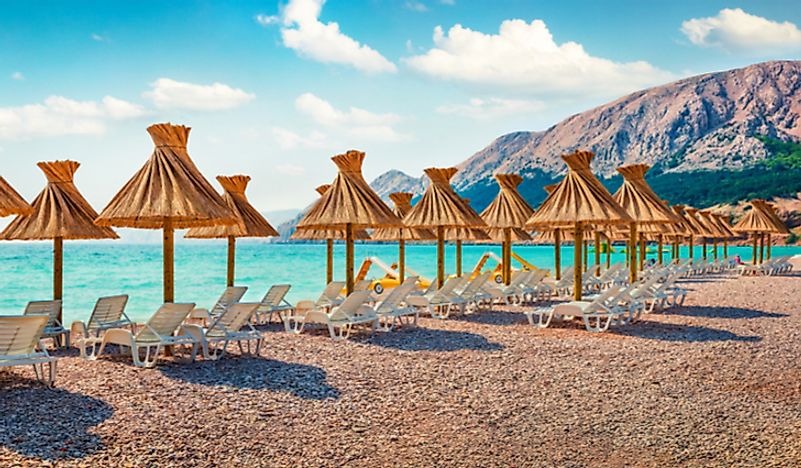What Are The Major Natural Resources Of Croatia?

Officially known as the Republic of Croatia, Croatia is a country in southeastern Europe. There are a number of things driving the economy of Croatia. One of these drivers, as is the case with all the countries in the world, is the natural resources. Croatia has plenty of natural resources although the main ones include tourist sites, agricultural resources, water for hydropower, petroleum and natural gas, and coal.
Tourism
Tourism is a massive industry in Croatia with the country having hosted more than 18 million visitors in 2018 alone. The history of the sector goes all the way back to the middle stages of the 19th century and has been going from strength to strength ever since. As is the case with most countries, tourism is a seasonal affair that is at its peak in Croatia between July and August. Mostly, tourists prefer to visit the regions along the coast of the massive Adriatic Sea. According to a survey done by the European Environment Agency in 2010, the sea has Europe’s second cleanest water. The tourist months are also characterized by warm and sunny weather that makes the country one of the most popular destinations in the Mediterranean.
Energy
The nation also has enough resources to produce its own energy to satisfy its needs. Most of the energy is produced from thermal and hydroelectric plants with the rest being produced by other sources like nuclear power. The total power generation capacity is currently 3745 MW, which is mainly divided between hydroelectric power (2079 MW) and thermal power (1666 MW). In total, Croatia has 25 plants that produce hydroelectric power from the vast water resources, especially from the Adriatic Sea.
Mining
Croatia is also a producer of petroleum and natural gas. Presently, the country has about 380 miles of crude oil pipelines that connect the oil terminal at the Port of Rijeka with refineries in other parts. In a year, the pipeline system has the capacity of handling around 20 million tons of crude oil. Aside from that, the country also boasts of an even longer system (about 1,313 miles) for natural gas. Presently, Croatia is able to handle about 85% of its national demand for natural gas and 19% of its demand for oil. Interestingly, in 2008, the bulk of the nation’s energy production (around 47.6%) was accounted for natural gas followed by hydroelectric power with a contribution of 25.4%. Power from crude oil and other sources followed.
Other Resources
In total, the country has about 2.96 million hectares of land, of which 90% can be cultivated. Presently, only half of the cultivatable land is being utilized. Consequently, it is not a surprise that the sector only accounts for about 5% of the nation’s gross domestic product. The reason for the low contribution of agriculture is that most of the country is heavily industrialized. Most of the agricultural exports include blue water fish, which has experienced a hike in demand recently. Other agricultural products from Croatia include wines, lavender, olive oil, and other organic oils.











